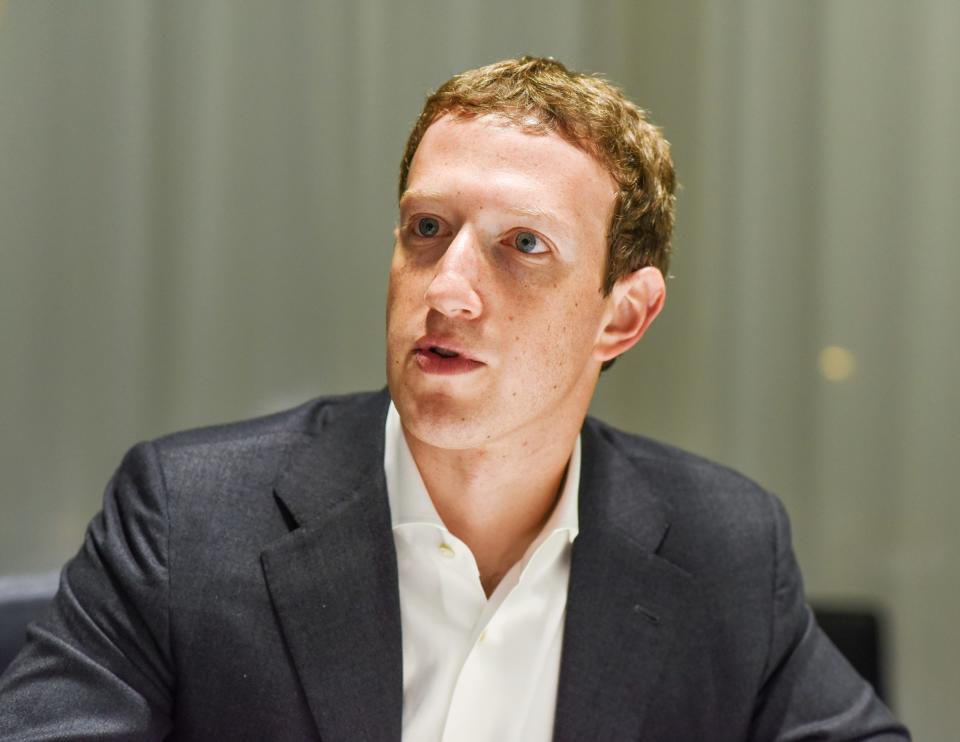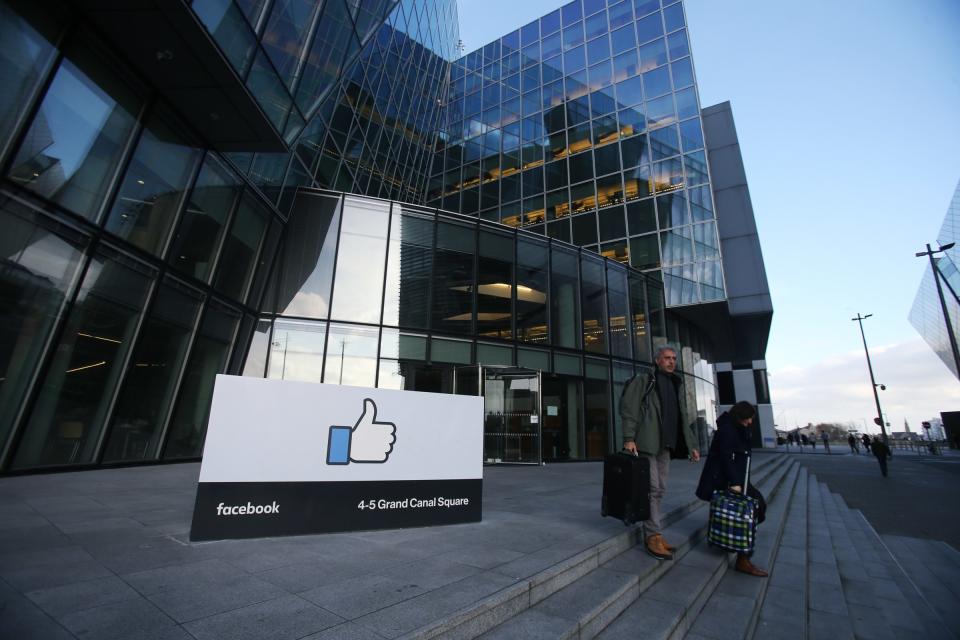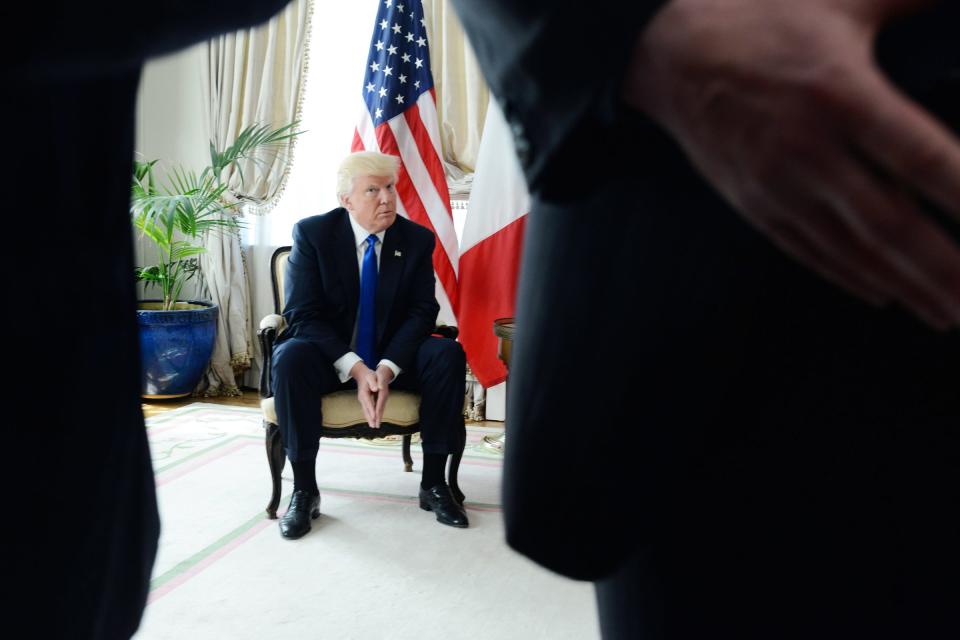Facebook's Election Ad Overhaul Takes Crucial First Steps
Facebook has agreed to give Congressional investigators roughly 3,000 political ads it found linked to Russian accounts that ran during the 2016 election. The company will also overhaul the way it approaches campaign ads altogether, seeking to create a “new standard for transparency,” CEO Mark Zuckerberg said in an address on Facebook Live Thursday.
This unexpected announcement from Facebook suggests the company has finally started listening to its many critics in Congress, the media, and at large. Less than a year ago, in the immediate aftermath of the election, Zuckerberg dismissed the idea that Facebook's fake news problem had anything to do with the results. Today's address suggests that the billionaire founder, who built a platform that two billion people rely on for news and political interactions, is finally starting to appreciate that his creation can do as much harm as good in this world.
Going forward, Facebook will require political advertisers to disclose the pages that have paid for the ad. Today, no law requires political advertisers to do this online, even though such disclosures are required on television. Facebook was unable to clarify whether this new rule applies only to official campaign organizations and PACs, or if it will apply more broadly to all political content.
Intriguingly, the company will also allow any user to visit an advertiser’s page and see all of the ads they’ve sent to segmented parts of the Facebook universe. Until now, advertisers, including President Trump’s campaign, have been able to target certain users on Facebook with highly tailored messages that others can't see. While these ads, often referred to as “dark posts,” are commonplace in digital advertising, they pose a serious transparency threat when it comes to politics and government.
Facebook also plans to add 250 people to its election integrity team, and to work more closely with election commissions around the world to report any risks or unusual behavior it identifies.
“Now, I wish I could tell you we're going to be able to stop all interference, but that wouldn't be realistic,” Zuckerberg said. “There will always be bad people in the world, and we can't prevent all governments from all interference. But we can make it harder. We can make it a lot harder. And that's what we're going to do.”
Reactive Measures
The company’s election integrity makeover and its commitment to share more information with Congress comes amid a growing backlash from leading senators like Mark Warner, vice chair of the Senate Intelligence Committee, and Richard Burr, the committee's chairman. They and others have asked Facebook for access to the ads ever since the company revealed it had discovered them weeks ago. Since then, Facebook has offered the ads only to special counsel Mueller's team, leaving investigators on Capitol Hill largely in the dark.
"We believe it is vitally important that government authorities have the information they need to deliver to the public a full assessment of what happened in the 2016 election," Facebook general counsel Colin Stretch wrote in a blog post Thursday. "That is an assessment that can be made only by investigators with access to classified intelligence and information from all relevant companies and industries—and we want to do our part.”
Even so, the move represents but a half-step toward transparency for Facebook. The company says it has not yet agreed to meet with Congress for an open hearing about Russian interference in the 2016 election, as Twitter plans to do next Wednesday.
In Thursday's livestream, Zuckerberg explained the company’s reticence about the issue. “As a general rule, we are limited in what we can discuss publicly about law enforcement investigations, so we may not always be able to share our findings publicly," he said. "But we support Congress in deciding how to best use this information to inform the public, and we expect the government to publish its findings when their investigation is complete.”
Zuckerberg acknowledged also that the company’s own investigation is far from complete, and that it “may find more,” in which case Facebook will continue to work with the government. What’s still unclear is whether either Mueller’s team or Congressional investigators will be able to see what exactly Facebook’s internal investigation entails.
First Steps
Whatever comes of the investigation into the 2016 election, the measures Zuckerberg announced today are vital toward fending off similar threats in future campaigns. Allowing citizens to see who pays for campaign ads on Facebook, and what their candidates and elected officials are saying to different subsets of the population, is an unprecedented move in the internet age. As a platform for two billion people, Facebook is well-poised to set that precedent.
Related Stories
Business
Social network says it found $150,000 in political ads from 'inauthentic accounts' and Pages from Russia between 2015 and May 2017
Business
The Internet Research Agency, which appears to have purchased thousands of bogus political ads on Facebook, may be defunct, but its work may not be done.
national affairs
Trump running campaign ads to a select audience on Facebook? That's just how ads work. The scary part is that you can't track them.
It’s clear, though, that none of these decisions can fully prevent malicious foreign actors from spreading their influence online. There are, of course, ways that they can organically spread content with coordinated hashtag campaigns and fake news stories, carefully shared with select Facebook groups. Since the election, Facebook has created ways that users can flag fake news, and it’s taken steps toward cracking down on accounts that share fake news multiple times. But it's unclear still how efficiently those moves have cleaned up people's News Feeds.
And despite these changes, Zuckerberg acknowledged, Facebook’s advertising platform remains vulnerable. The majority of ads on Facebook are bought programmatically, meaning machines do most of the buying, without human involvement. That, he says, is how the Russia-linked ads were purchased. While the company says it plans to develop new levels of human oversight, Zuckerberg was clear that Facebook does not want to be in a position of policing speech. The more Facebook involves itself in what people can and cannot say, the more it risks taking a hit not only from communities that argue they’re being censored, but also to its bottom line.
“We don't check what people say before they say it, and frankly, I don't think our society shouldn't want us to,” Zuckerberg said. “Freedom means you don't have to ask permission first, and that by default you can say what you want. If you break our community standards or the law, then you're going to face consequences afterwards.”
That seems like an appropriate bar to set. So far, in the case of Russian meddling, it hasn't proven true.




